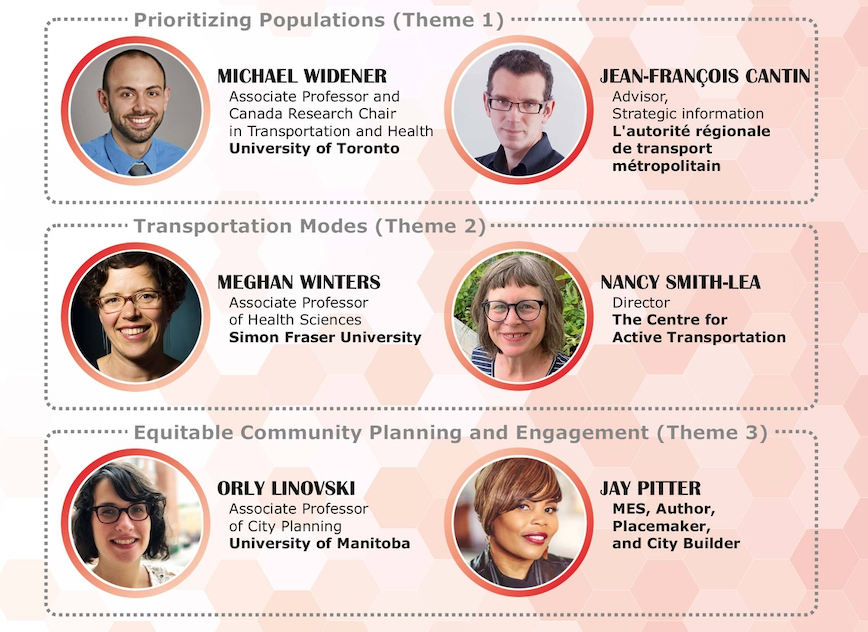
Is getting from A to B equally safe and reliable for all Canadians, regardless of their income, the way they get around (i.e. walking, cycling, transit, car), race and ethnicity, gender, age, ability, or where they live?
If we’re honest, we need to say no. But can we envision what it would take to get us to the point of answering “of course!”
Led by University of Toronto’s Dr. Steven Farber, this new five-year, intersectoral, national research partnership called Mobilizing Justice aims to carve out a path forward to understand and address transportation poverty in Canada and provide actionable research findings to municipalities to improve the wellbeing of Canadians at risk of transport-related social exclusion.
The Mobilizing Justice research partnership is structured into six working groups, each co-led by academic and community partners. Theme 2, the Transportation Modes Thematic Working Group, is led by academic co-applicant Dr. Meghan Winters at Simon Fraser University with partner co-lead Nancy Smith Lea at The Centre for Active Transportation (TCAT) at Clean Air Partnership.
Theme 2 will address the barriers to using different modes of transportation (e.g. walk, car, bike, transit) and how those experiencing transport poverty either manage or fail to use a mix of travel modes to meet their travel needs.
TCAT will contribute to Mobilizing Justice outreach and engagement with local and national community organizations experiencing or addressing transport poverty, organize an annual event (online/virtual) with local and national organizations, and produce policy briefs.
To kickstart this work, we are beginning to assemble a catalogue of inspiring community initiatives that support transport equity and increase modal choice.
For many years, TCAT has worked to understand and advance transportation equity, including through co-design, Complete Streets, and health equity in active transportation planning.
Despite TCAT’s strong interest and years of focused work, we still have so much to learn, especially relating to building equity and justice into transportation planning and public spaces. At TCAT we feel privileged to have this opportunity through Mobilizing Justice to ask questions, listen to, and learn from communities that are experiencing transport poverty, and to advance an equitable mobility framework informed by social justice.
